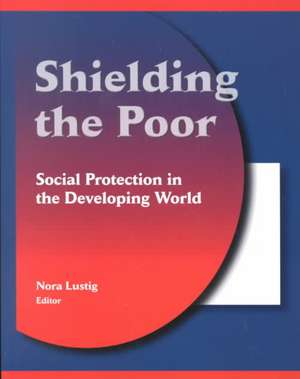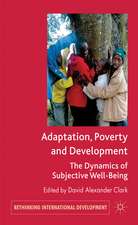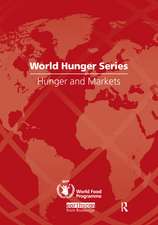Shielding the Poor: Social Protection in the Developing World
Editat de Nora Claudia Lustigen Limba Engleză Paperback – dec 2000
The poor in developing countries are particularly vulnerable to adverse shocks. They have little or no access to public social insurance, are unlikely to save in adequate amounts to rely fully on self-insurance or informal insurance, face restricted access to private market insurance or credit mechanisms, and have little or no political voice to demand the protection of safety net programs. In this book, the authors analyze the best ways to help the poor manage risks such as health shocks, unemployment, sudden drops in income, and old age. Unemployment benefits, employment programs, means-tested social assistance, social investment funds, and micro-finance for consumption-smoothing purposes are the leading options considered. The book provides a careful assessment of issues that governments need to address in the process of designing appropriate safety nets.
Preț: 250.52 lei
Nou
Puncte Express: 376
Preț estimativ în valută:
47.94€ • 50.22$ • 39.73£
47.94€ • 50.22$ • 39.73£
Carte tipărită la comandă
Livrare economică 09-23 aprilie
Preluare comenzi: 021 569.72.76
Specificații
ISBN-13: 9780815753216
ISBN-10: 0815753217
Pagini: 320
Dimensiuni: 152 x 229 x 21 mm
Greutate: 0.51 kg
Ediția:New.
Editura: Brookings Institution Press
Colecția Brookings Institution Press
Locul publicării:United States
ISBN-10: 0815753217
Pagini: 320
Dimensiuni: 152 x 229 x 21 mm
Greutate: 0.51 kg
Ediția:New.
Editura: Brookings Institution Press
Colecția Brookings Institution Press
Locul publicării:United States
Notă biografică
Nora Lustig is a senior fellow in Brookings' Foreign Policy Studies program and the editor of Coping with Austerity: Poverty and Inequality in Latin America (Brookings, 1995).
Descriere
A Brookings Institution Press and Inter-American Development Bank publication
The poor in developing countries are particularly vulnerable to adverse shocks. They have little or no access to public social insurance, are unlikely to save in adequate amounts to rely fully on self-insurance or informal insurance, face restricted access to private market insurance or credit mechanisms, and have little or no political voice to demand the protection of safety net programs. In this book, the authors analyze the best ways to help the poor manage risks such as health shocks, unemployment, sudden drops in income, and old age. Unemployment benefits, employment programs, means-tested social assistance, social investment funds, and micro-finance for consumption-smoothing purposes are the leading options considered. The book provides a careful assessment of issues that governments need to address in the process of designing appropriate safety nets.
The poor in developing countries are particularly vulnerable to adverse shocks. They have little or no access to public social insurance, are unlikely to save in adequate amounts to rely fully on self-insurance or informal insurance, face restricted access to private market insurance or credit mechanisms, and have little or no political voice to demand the protection of safety net programs. In this book, the authors analyze the best ways to help the poor manage risks such as health shocks, unemployment, sudden drops in income, and old age. Unemployment benefits, employment programs, means-tested social assistance, social investment funds, and micro-finance for consumption-smoothing purposes are the leading options considered. The book provides a careful assessment of issues that governments need to address in the process of designing appropriate safety nets.
















